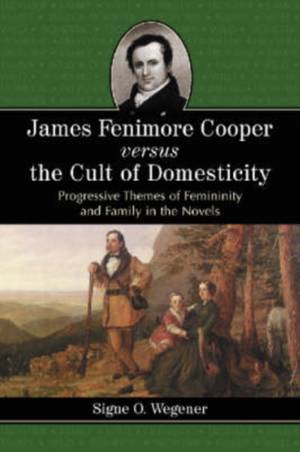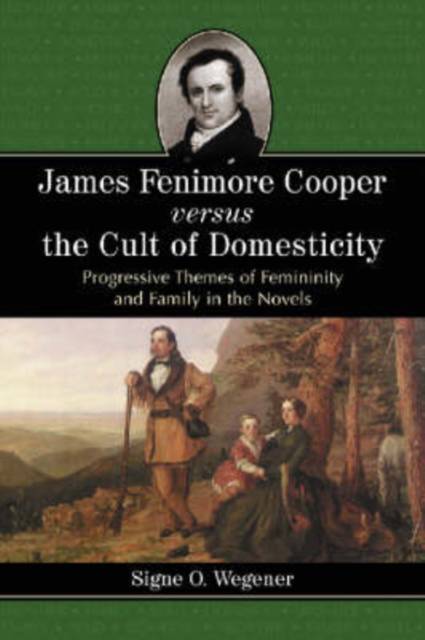
- Afhalen na 1 uur in een winkel met voorraad
- Gratis thuislevering in België
- Ruim aanbod met 7 miljoen producten
- Afhalen na 1 uur in een winkel met voorraad
- Gratis thuislevering in België
- Ruim aanbod met 7 miljoen producten
James Fenimore Cooper Versus the Cult of Domesticity
Progressive Themes of Femininity and Family in the Novels
Signe O WegenerOmschrijving
Between 1820 and 1860 a set of established cultural values deemed the "Cult of Domesticity" sought to shape the private and public lives of individuals in a rapidly changing American society. Promoting the ideals of conformity in religious, domestic and personal development, the cult was particularly concerned with maintaining a status quo of piety, purity, obedience and domesticity in 19th century female behavior. While a number a female writers responded through literature to the social standards they were urged to emulate, the prominent male writer James Fenimore Cooper reacted as well, addressing the predominant cultural climate through texts that establish women as an integral part of the plot line.
This book provides a comprehensive discussion of James Fenimore Cooper's view of family dynamics and explores his attempts to simultaneously present and critique the forces shaping the social development of the nation. The study places 10 relevant Cooper novels within the context of popular literary works by 19th century writers Lydia Maria Child, Catherine Maria Sedgwick, Susan Warner and Maria Cummins to demonstrate how Cooper approaches issues of Victorian domesticity and how his representations compare to those crafted by the contemporary women writers. Opening chapters discuss why Cooper chose the women's fiction genre as his vehicle and present an overview of the "Cult of Domesticity" in fiction and nonfiction, delineating the origins and effects of 19th century domestic life. Remaining chapters address the role of the mother, the father and the central daughter figure in domestic fiction.
Specificaties
Betrokkenen
- Auteur(s):
- Uitgeverij:
Inhoud
- Aantal bladzijden:
- 191
- Taal:
- Engels
Eigenschappen
- Productcode (EAN):
- 9780786421282
- Verschijningsdatum:
- 5/04/2005
- Uitvoering:
- Paperback
- Formaat:
- Trade paperback (VS)
- Afmetingen:
- 161 mm x 220 mm
- Gewicht:
- 276 g

Alleen bij Standaard Boekhandel
Beoordelingen
We publiceren alleen reviews die voldoen aan de voorwaarden voor reviews. Bekijk onze voorwaarden voor reviews.












